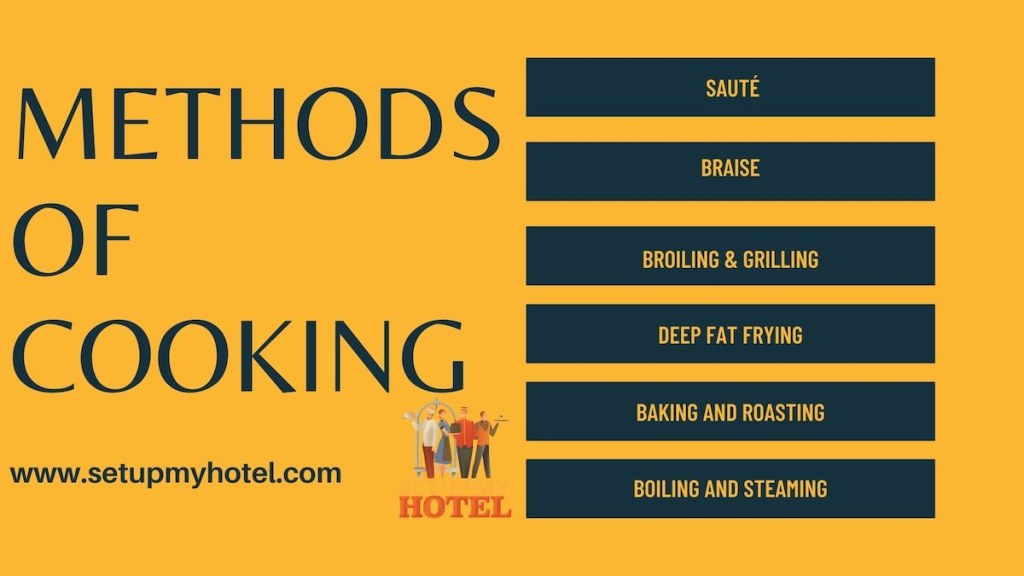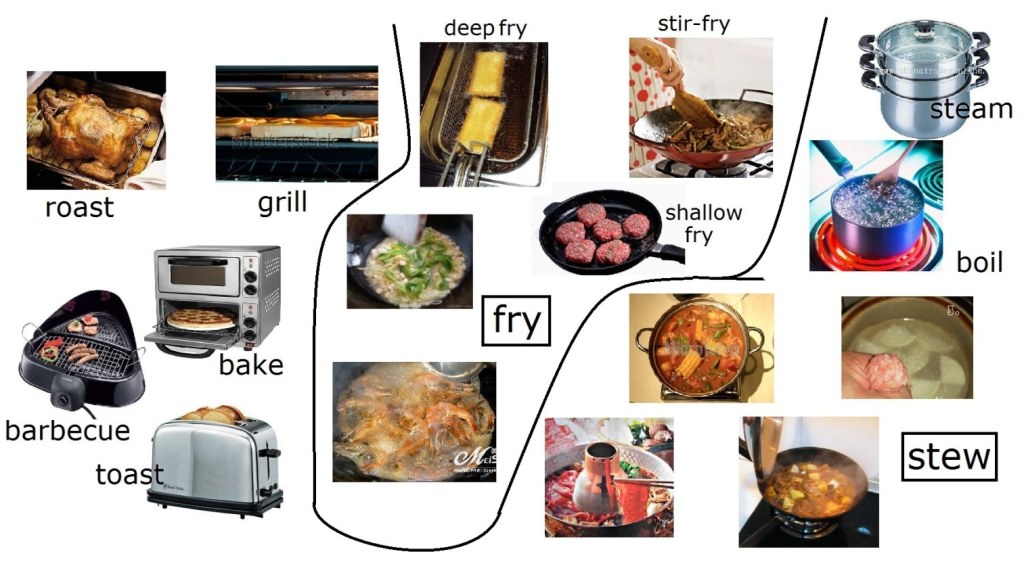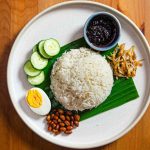The Ultimate Guide To Cooking Methods In The Hospitality Industry: Master Your Culinary Skills Now And Elevate Your Career!
Cooking Methods in the Hospitality Industry
Introduction
Hello readers, welcome to our informative article about cooking methods in the hospitality industry. In this article, we will explore the various cooking techniques used in the hospitality industry, providing you with valuable insights. Whether you are a professional chef or simply interested in the culinary world, this article will enhance your knowledge about the cooking methods commonly employed in the hospitality industry. So, let’s dive in and discover the secrets behind creating delicious dishes!
The hospitality industry is known for its diverse range of culinary offerings. From fine dining restaurants to casual cafes, each establishment has its unique cooking methods that contribute to the exceptional taste of their dishes. Whether it’s searing, sautéing, or grilling, every cooking method has its own significance in creating extraordinary culinary experiences. So, let’s explore the world of cooking methods in the hospitality industry!
2 Picture Gallery: The Ultimate Guide To Cooking Methods In The Hospitality Industry: Master Your Culinary Skills Now And Elevate Your Career!


Before we delve into the specifics, let’s first understand what cooking methods in the hospitality industry entail. These methods refer to the techniques and processes followed by chefs and cooks in preparing dishes. It involves a combination of heat, timing, and ingredients to bring out the desired flavors, textures, and appearances of the dishes. Now, let’s take a closer look at the various cooking methods and how they are utilized in the hospitality industry.
What Are Cooking Methods in the Hospitality Industry?
🔥 Heat is the key 🔥
The core essence of cooking methods in the hospitality industry lies in the application of heat. Heat acts as a catalyst, transforming raw ingredients into delicious meals. It helps in breaking down complex proteins, unlocking natural flavors, and creating appealing textures. The cooking methods in the hospitality industry can be broadly classified into moist heat methods and dry heat methods.
Moist Heat Methods

Image Source: setupmyhotel.com
Moist heat methods involve the use of water or other liquids to cook food. This method is perfect for dishes that require tenderness and juiciness. It includes techniques such as boiling, simmering, poaching, steaming, and braising.
1. Boiling: This method involves submerging food in a liquid and heating it until it reaches its boiling point. It is commonly used for cooking pasta, rice, and vegetables.
2. Simmering: Simmering is the process of cooking food in liquid at a temperature just below the boiling point. It is used for slow-cooking delicate foods like soups, stews, and sauces.
3. Poaching: Poaching refers to gently cooking food in a liquid, usually water or a flavorful broth. It is often used for delicate ingredients like eggs, fish, and fruits.
4. Steaming: Steaming involves cooking food by exposing it to steam. This method helps retain the natural flavors and nutrients in the food. Steaming is commonly used for vegetables, seafood, and dumplings.

Image Source: bngkolkata.com
5. Braising: Braising is a combination cooking method that involves both dry heat and moist heat. It includes browning the food in a pan and then slow-cooking it in a liquid. Braising is commonly used for tough cuts of meat to make them tender and flavorful.
Dry Heat Methods
Dry heat methods involve the use of direct or indirect heat without the addition of any liquid. These methods are employed when a crispy texture or a caramelized exterior is desired. It includes techniques such as roasting, baking, grilling, broiling, frying, and sautéing.
1. Roasting: Roasting is a cooking method that involves exposing food to dry heat in an oven or open flame. It is often used for larger cuts of meat, poultry, and vegetables.
2. Baking: Baking refers to cooking food in an enclosed space, such as an oven. It is commonly used to prepare bread, pastries, cakes, and casseroles.
3. Grilling: Grilling is a popular cooking method that involves cooking food on a grill rack over an open flame or hot coals. It is perfect for sizzling meats, vegetables, and seafood.
4. Broiling: Broiling is similar to grilling, but the heat source comes from above. It is used to cook food quickly and create a crispy exterior. Broiling is commonly used for melting cheese, browning the tops of casseroles, and adding a finishing touch to dishes.
5. Frying: Frying involves cooking food in hot oil or fat. It helps create a crispy exterior while keeping the interior moist. Frying can be done through shallow frying or deep frying, depending on the desired results.
6. Sautéing: Sautéing is a cooking technique that involves quickly cooking food in a small amount of oil or fat over high heat. It is commonly used for stir-frying vegetables, searing meat, and creating flavorful sauces.
Who Utilizes Cooking Methods in the Hospitality Industry?
👨🍳 Chefs, Cooks, and Culinary Professionals 👩🍳
Cooking methods in the hospitality industry are utilized by a diverse range of professionals, including chefs, cooks, and culinary enthusiasts. Chefs are trained professionals who have mastered the art of cooking and are responsible for creating innovative and delicious dishes. Cooks, on the other hand, work alongside chefs in executing the recipes and ensuring the quality and consistency of the dishes. Both chefs and cooks employ various cooking methods to bring out the best flavors and textures in the dishes they prepare.
When Are Cooking Methods Used in the Hospitality Industry?
⏰ Everyday Culinary Adventures ⏰
Cooking methods in the hospitality industry are used every day, from breakfast to dinner and everything in between. Chefs and cooks utilize these methods during various stages of food preparation, from marinating and seasoning to cooking and plating. Whether it’s a busy breakfast service or an elegant dinner affair, cooking methods play a vital role in ensuring that each dish is prepared to perfection and meets the expectations of the customers.
Where Are Cooking Methods Employed in the Hospitality Industry?
🌍 From Local Eateries to Michelin-starred Restaurants 🌍
Cooking methods in the hospitality industry are employed across a wide range of establishments, from local eateries to Michelin-starred restaurants. Whether it’s a small café or a high-end fine dining restaurant, each establishment utilizes cooking methods to create unique and memorable dining experiences for their customers. The versatility of cooking methods allows chefs and cooks to explore a variety of cuisines and create dishes that cater to diverse palates.
Why Are Cooking Methods Important in the Hospitality Industry?
🍽️ The Art and Science of Flavor 🍽️
Cooking methods are of utmost importance in the hospitality industry as they contribute to the overall flavor, texture, and appearance of the dishes. Each cooking method brings out unique flavors and textures, making the dishes more appealing to the customers. The precise application of cooking methods ensures that the ingredients are cooked to perfection, resulting in a harmonious blend of flavors that tantalize the taste buds. Moreover, cooking methods are essential for food safety, as they help eliminate harmful bacteria and ensure that the food is safe for consumption.
How Are Cooking Methods Utilized in the Hospitality Industry?
🔪 Mastering the Techniques 🔪
Mastering cooking methods in the hospitality industry requires practice, skill, and a deep understanding of the ingredients. Chefs and cooks undergo rigorous training to perfect their techniques and achieve consistent results. They experiment with different cooking methods, temperatures, and timings to create dishes that are not only delicious but also visually appealing. Through constant innovation and refinement, chefs and cooks push the boundaries of culinary creativity, taking the art of cooking to new heights.
Advantages and Disadvantages of Cooking Methods in the Hospitality Industry
Advantages:
1. Enhanced Flavor: Cooking methods help enhance the natural flavors of the ingredients, resulting in delicious and satisfying dishes.
2. Versatility: Cooking methods provide chefs and cooks with a wide range of techniques to explore, allowing them to create diverse and innovative dishes.
3. Textural Variety: Different cooking methods lead to varied textures in dishes, providing a delightful experience for the diners.
4. Customization: Cooking methods allow chefs and cooks to tailor dishes to meet individual preferences and dietary restrictions.
5. Preservation: Certain cooking methods, such as braising and pickling, help preserve ingredients for longer periods, reducing food waste.
Disadvantages:
1. Time-consuming: Some cooking methods, such as braising and slow-cooking, require ample time, which may not be feasible in fast-paced hospitality environments.
2. Skill Intensive: Mastering cooking methods requires skill, practice, and experience, which can be challenging for novice cooks.
3. Equipment Requirements: Certain cooking methods, such as grilling and roasting, require specialized equipment, which may not be available in all kitchens.
4. Health Concerns: Deep-frying and excessive use of oil in cooking methods can pose health risks if not consumed in moderation.
5. Flavor Loss: Improper execution of cooking methods can lead to flavor loss or overcooking, resulting in subpar dishes.
Frequently Asked Questions (FAQs)
1. Are cooking methods in the hospitality industry the same as home cooking methods?
No, cooking methods in the hospitality industry often involve more advanced techniques and larger-scale equipment to cater to the demands of commercial cooking.
2. Can I use multiple cooking methods in a single dish?
Yes, combining cooking methods can add complexity and depth to a dish. Chefs often utilize both moist and dry heat methods to achieve desired flavors and textures.
3. Do cooking methods affect the nutritional value of food?
Cooking methods can affect the nutritional value of food. Some methods, like steaming and boiling, help retain nutrients, while others, like frying, may reduce certain nutrients.
4. Can cooking methods be altered for dietary restrictions?
Absolutely! Cooking methods can be adapted to accommodate dietary restrictions. For example, grilling can be used for vegetarian dishes, and baking can be done with gluten-free ingredients.
5. Are certain cooking methods more suitable for specific types of cuisine?
Yes, certain cooking methods are associated with specific cuisines. For example, stir-frying is commonly used in Asian cuisine, while roasting is popular in Western cuisine.
Conclusion
In conclusion, cooking methods play a significant role in the hospitality industry, elevating the culinary experiences of diners and allowing chefs and cooks to showcase their skills. From moist heat methods like boiling and poaching to dry heat methods like grilling and baking, each technique contributes to the creation of delicious dishes. While cooking methods offer numerous advantages, they also come with certain challenges. However, with the right skills and knowledge, chefs and cooks can overcome these obstacles and create culinary masterpieces.
So, whether you are a chef, a cook, or simply an enthusiastic food lover, understanding cooking methods in the hospitality industry opens up a world of possibilities in the culinary realm. Embrace the art and science of cooking, experiment with different methods, and embark on a delicious journey that will delight your taste buds and leave you craving for more!
Final Remarks
Thank you, dear readers, for joining us on this culinary adventure through the realm of cooking methods in the hospitality industry. We hope this article has provided you with valuable insights and inspired you to explore the diverse techniques used in professional kitchens. Remember, cooking is an art that requires a combination of passion, creativity, and technical skills. So, embrace your inner chef, experiment with different cooking methods, and let your culinary creations shine!
This post topic: Cooking Techniques

